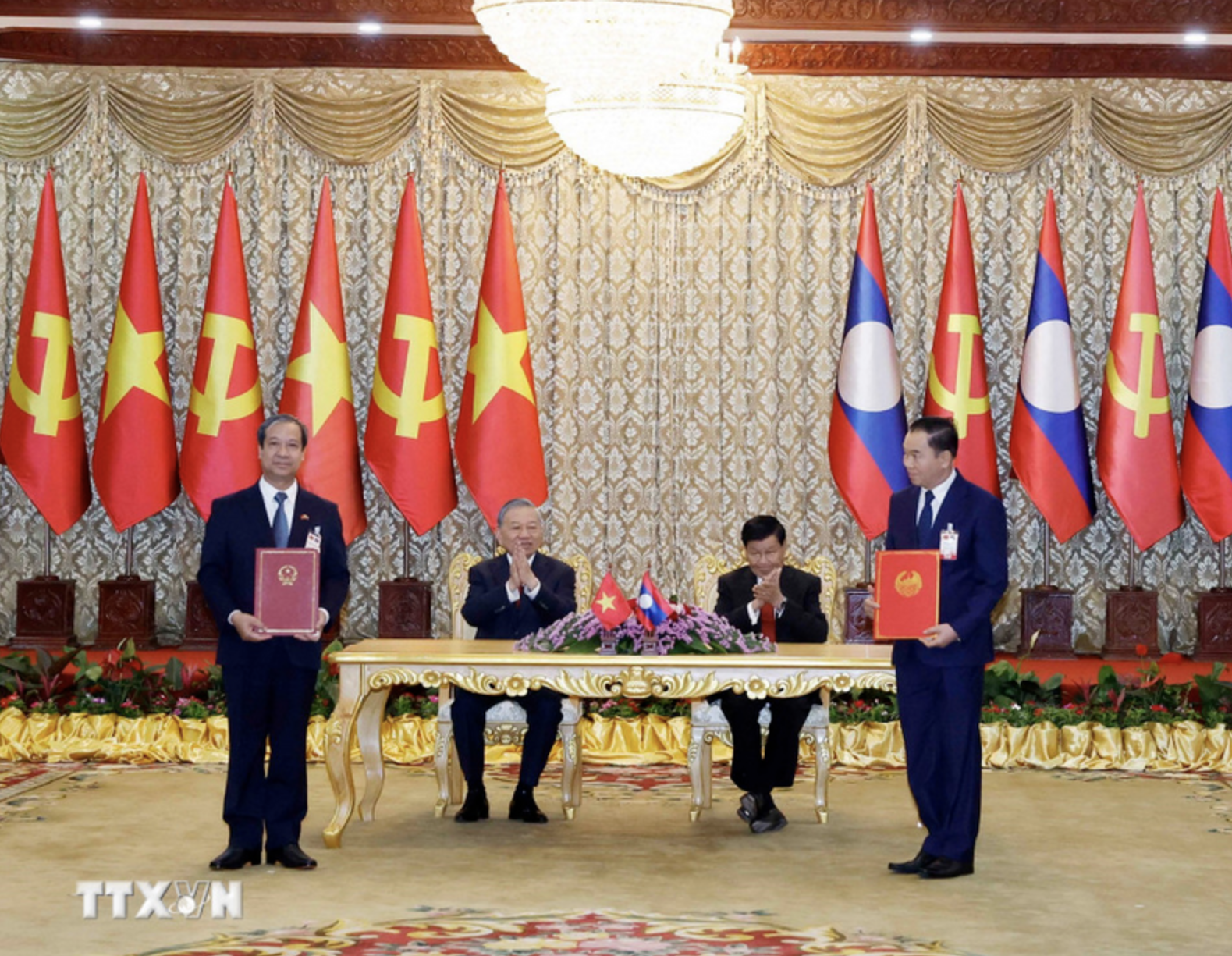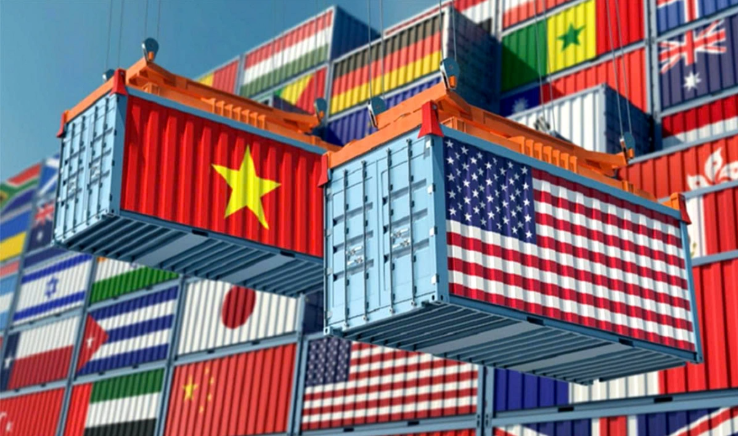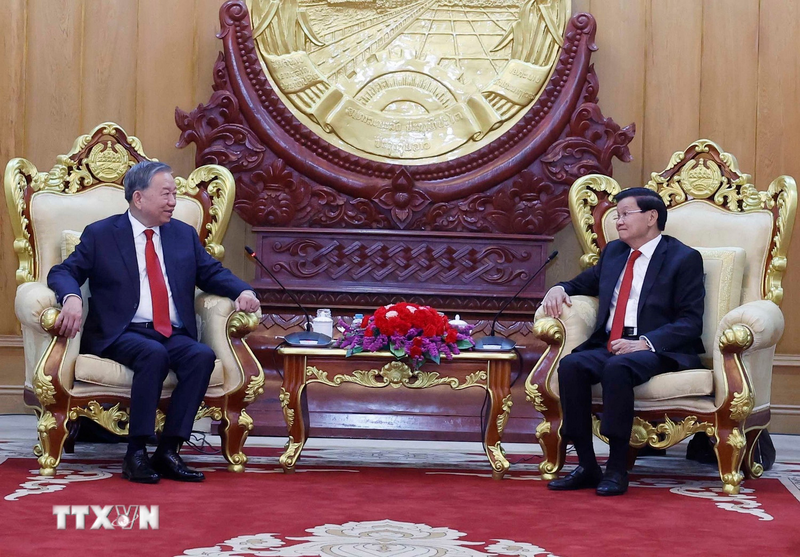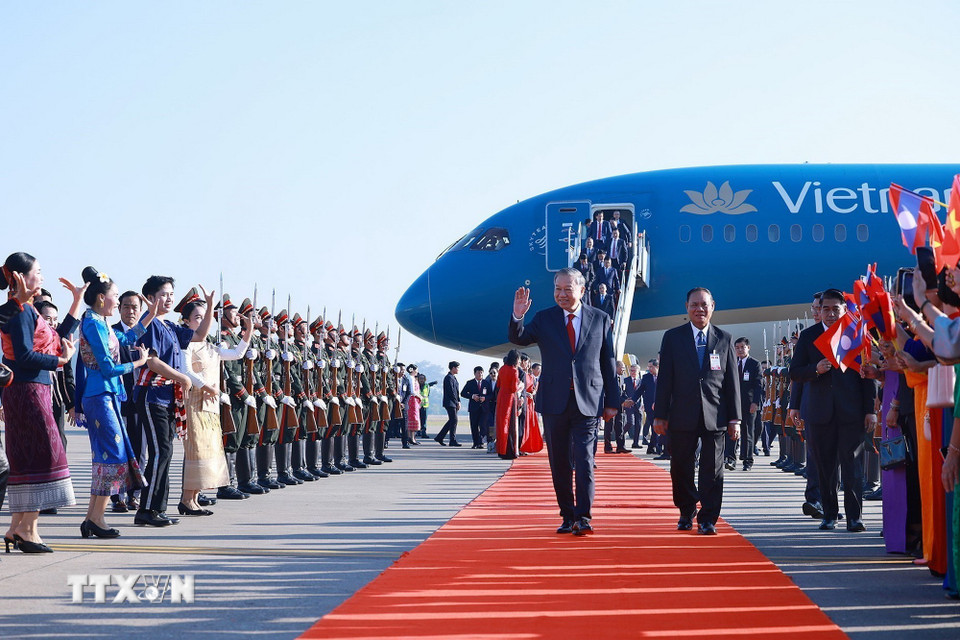
Vietnam - Laos exchange important cooperation documents
19:05 | 23/03/2025 17:29 | 05/02/2026News and Events
Vietnam Economic News recently held an interview with H.E. Thomas Gass, Ambassador of Switzerland to Vietnam, to share his insights on the recent progress in Vietnam–Switzerland cooperation and the prospects for future bilateral ties.

H.E. Thomas Gass, Ambassador of Switzerland.
The 2020–2025 period can be considered a “golden phase” in Vietnam–Switzerland relations. At the beginning of 2025, senior leaders of both countries issued a joint statement to elevate bilateral ties to a strategic partnership, opening a new chapter in bilateral cooperation. Having worked closely with Vietnam, how would you assess the economic and trade relations between the two countries during the 2020–2025 term?
Despite global disruptions from COVID-19, Vietnam's economy demonstrated strong resilience between 2020 and 2025. Strategic government stimulus, robust exports, and supply chain shifts benefited growth. While the anti-corruption campaign caused short-term uncertainty, it improved transparency and investor confidence long-term. Key sectors like manufacturing and tech saw continued expansion. Overall, Vietnam maintained one of Southeast Asia’s most dynamic growth trajectories.
This resilience created momentum to deepen Vietnam–Switzerland economic ties. Trade continued to grow, particularly in pharmaceuticals, precision engineering, and sustainability solutions. Swiss businesses expanded investment in Vietnam’s stable and reform-oriented environment. The two countries also re-committed to finalizing its FTA negotiations.
What have been the key milestones or highlights in this bilateral economic and trade partnership, in your view?
Between 2020 and 2025, bilateral trade between Vietnam and Switzerland consistently exceeded CHF 2 billion annually, with Vietnam maintaining a trade surplus. As of December 2024, Switzerland ranked as the 20th largest foreign investor in Vietnam, with cumulative investment reaching USD 2.18 billion. The actual scale of Swiss and broader European FDI is likely higher, as investments are often routed through third countries like Singapore and the British Virgin Islands. In 2024 alone, 13 new Swiss investment projects were launched across manufacturing, IT, logistics, and services, concentrated in Ho Chi Minh City, Long An, and Da Nang. Over 100 Swiss companies are active in Vietnam, spanning sectors from precision instruments and food processing to transport and construction.
Besides the already mentioned FTA negotiations, talks are also ongoing to modernize the bilateral investment protection agreement, aiming to align it with international standards.
Switzerland has other instruments that can contribute to sustainable and productive investments in Vietnam that deliver results already. For instance, through its export credit agency SERV, Switzerland recently insured approximately 60% of the US $521.5 million loan arranged by Citi and ING to finance Vietnam’s first LNG power plants. SERV’s support of roughly US $290 million enabled the procurement of key clean-energy technologies and equipment. This commitment underscored a tangible, high-impact contribution to Vietnam’s energy transition.
Economic cooperation has also deepened through Switzerland’s SECO-funded development programs, which support Vietnam’s transition toward a more sustainable and competitive economy. Switzerland played a key role in formulating Vietnam’s National Import-Export Strategy to 2030, focusing on sectors like electronics, agribusiness, wood products, and textiles. Cross-cutting priorities such as innovation, sustainability, quality standards, and digital transformation have been central to these efforts. Swiss support has helped strengthen national quality infrastructure—especially in agriculture—and promoted export readiness through capacity building and digital trade initiatives. Importantly, these programs have fostered public-private dialogue on trade reform, reinforcing Vietnam’s global value chain integration and long-term economic resilience.
Based on these achievements, could you share which pillars or potential areas of cooperation both sides could explore further in the coming period?
Looking ahead, there is significant potential to deepen our bilateral cooperation across several strategic pillars.
We are looking forward to an increased pace of negotiation of the Free Trade Agreement between Vietnam and the EFTA member states, including Switzerland. Concluding this agreement would mark a major milestone in the 55th anniversary of Switzerland–Vietnam diplomatic relations in 2026 and provide a robust framework to unlock new opportunities for trade and investment.
One immediate area of focus is the ongoing effort to update our bilateral investment protection agreement, aligning it with modern international standards. This will help reinforce investor confidence and pave the way for expanded economic collaboration in the years to come.
With the Vietnamese Government’s strong focus on promoting private-sector development, Vietnamese enterprises are well-positioned to play a greater role in driving economic growth. Their engagement will be especially critical in major infrastructure projects, such as the North–South high-speed railway, energy infrastructure, and large-scale transport developments. Swiss companies have expressed strong interest in partnering with Vietnamese firms in these areas, bringing advanced technologies and expertise to support Vietnam’s path toward industrial modernization and sustainable development.
Switzerland has also launched its new Economic Development Cooperation Program in Vietnam for the 2025–2028 period. Under the first pillar—centered on sustainable trade and innovation—we will continue to support Vietnam in meeting international sustainability standards, thereby enabling greater access to high-value global markets. Enhancing productivity remains a key priority, with technical assistance aimed at developing a skilled workforce and fostering the adoption of green technologies, decarbonization measures, and digital transformation.
As you have just shared, the economic and trade cooperation between Vietnam and Switzerland has seen remarkable progress. Contributing significantly to this progress is the Ministry of Industry and Trade, the key agency responsible for implementing relevant industrial and trade policies.
How do you evaluate the role of the Ministry of Industry and Trade in fostering bilateral economic and trade cooperation between Vietnam and Switzerland? Especially during a period marked by global economic challenges such as the COVID-19 pandemic, geopolitical tensions, and shifting tariff policies-how, in your opinion, has the Ministry fulfilled its role in trade, import -export, and energy management to sustain the growth of bilateral trade?
We highly appreciate the Ministry of Industry and Trade’s (MOIT) dedicated efforts in promoting trade and strengthening Vietnam’s integration into global value chains.
MOIT plays a vital role in guiding and supporting Swiss investors—both large corporations and SMEs—in navigating regulatory challenges and reducing red tape. While progress has been made, MOIT could become even more effective in this area. Additionally, MOIT coordinates Vietnam’s side of the ongoing FTA negotiations with EFTA. Given current global uncertainties around tariffs, we hope both sides will urgently conclude these negotiations to establish predictable, rule-based frameworks that benefit all parties.
As a key partner in Switzerland’s economic development cooperation, MOIT has worked closely with us through initiatives such as the Swiss Trade Policy and Export Promotion Project (Swiss Trade Project), aiming to improve the trade performance and international competitiveness of Vietnamese small and medium-sized enterprises (SMEs). This collaboration has helped reinforce public–private dialogue on trade policy reform, supported the adoption of innovative trade promotion tools, and advanced shared priorities—including sustainability, digital transformation, and export competitiveness and strengthening Vietnam’s trade promotion ecosystem. Ultimately, the project contributes to sustainable and inclusive economic growth in Vietnam.
Vietnam is entering a new era—an era of national transformation marked by historic reforms, including administrative streamlining and a shift to a two-tier local government model. From this foundation, what are your hopes or recommendations for the Ministry of Industry and Trade in advancing bilateral cooperation—particularly in export–import, industrial development, and energy, which are areas of shared interest and growing focus for both sides?
In terms of economic and trade relations, I would like to highlight the unique momentum that recent law revisions and resolutions adopted by the Politburo, such as Resolution Nr. 68 on the role of the Vietnamese private sector in driving the country’s growth and innovation, science and technology developments. Structural reforms promoting innovation and further domestic value creation are required for Vietnam to avoid the middle-income trap. Switzerland has experience to share in terms of its competitive business environment and innovation-driven private sector.
Through its ODA-financed projects, Switzerland is committed to supporting Vietnam, especially SMEs, in boosting export capacities, green transition in industrial development, and resource efficiency. We encourage the Ministry of Industry and Trade to continue reforms that simplify trade procedures, promote green technologies, digital transformation, and skills development, and accelerate the energy transition through renewable energy and low-carbon solutions. SECO’s programs align with MOIT’s priorities, providing technical assistance and capacity building to help Vietnamese industries.
Overall, a strengthened innovation and investment environment could make Vietnam even more attractive for Swiss companies – e.g. in fields like IT, digital banking and various high-tech sectors (e.g. machinery, BioTech, CleanTech), which could enable further tech-transfer to the domestic economy.

19:05 | 23/03/2025 17:29 | 05/02/2026News and Events

19:05 | 23/03/2025 17:05 | 05/02/2026News and Events

19:05 | 23/03/2025 17:04 | 05/02/2026News and Events

19:05 | 23/03/2025 15:58 | 05/02/2026News and Events

19:05 | 23/03/2025 15:57 | 05/02/2026News and Events